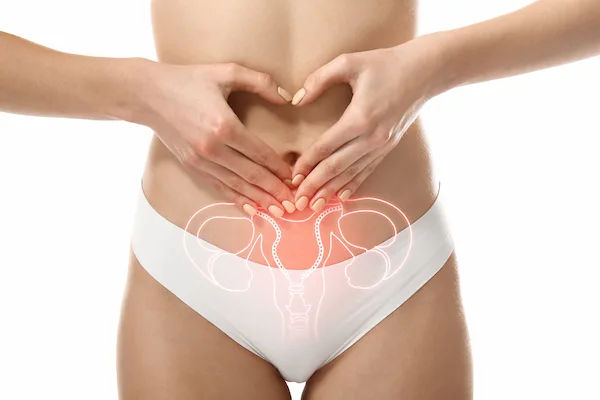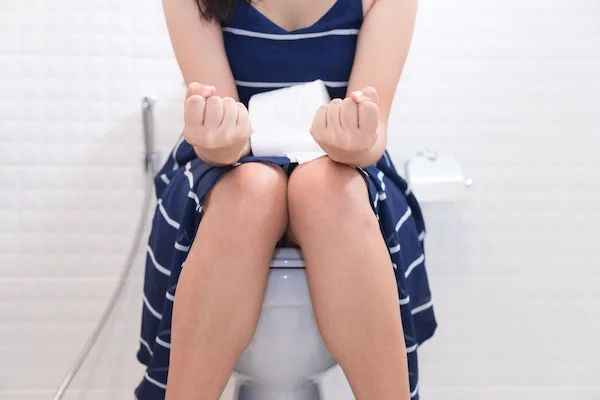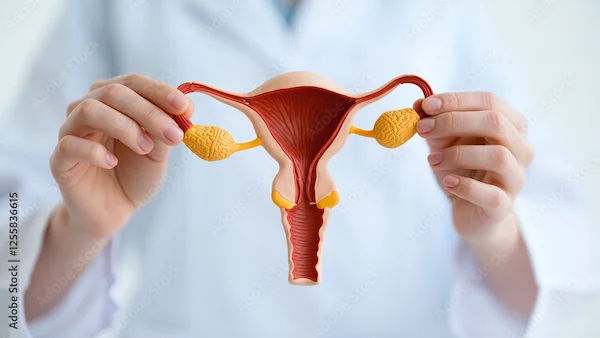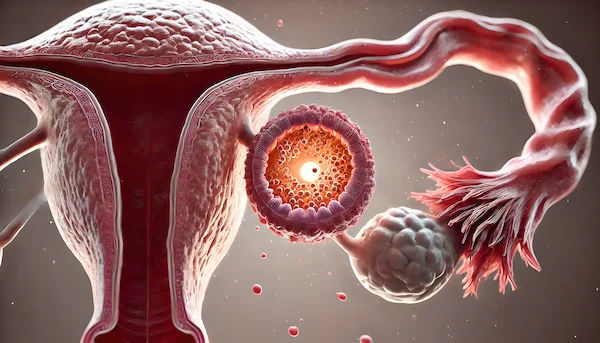Where Are The Ovaries Attached After Hysterectomy?
Wondering what happens to your ovaries after a hysterectomy? Learn where the ovaries are attached post-surgery, how it affects your health, and when you may need hormone therapy.

Written by Dr.Sonia Bhatt
Last updated on 7th Jul, 2025

Introduction
A hysterectomy is a common surgical procedure where the uterus (womb) is removed. Many women have concerns about what happens to their ovaries after this surgery. If you're wondering, "Where are the ovaries attached after a hysterectomy?"—this article will explain everything in simple terms.
Understanding the Ovaries and Their Role
The ovaries are small, almond-shaped organs located on either side of the uterus. They have two main functions:
1. Producing hormones—oestrogen and progesterone—that regulate menstrual cycles, mood, and overall health.
2. Releasing eggs for fertilisation.
During a hysterectomy, the uterus is removed, but the ovaries may or may not be removed, depending on the patient's condition.
Consult Top Specialists for Personalised Health Advice
What Happens to the Ovaries After Hysterectomy?
There are two main outcomes when it comes to the ovaries during a hysterectomy: they are either preserved or removed. Let’s look at both scenarios in detail.
1. Ovaries Are Kept (Oophorectomy Not Performed)
If the ovaries are healthy and there’s no risk of ovarian cancer or other complications, the surgeon may leave them in place.
Where are they attached now?
The ovaries are originally connected to the uterus by ligaments. After the uterus is removed, these ligaments are reattached to other structures in the pelvis, such as the pelvic sidewall or the top of the vagina.
The fallopian tubes, if kept, may also be repositioned.
Benefits of Keeping Ovaries:
Continued hormone production, preventing early menopause.
Lower risk of osteoporosis and heart disease.
2. Ovaries Are Removed (Oophorectomy Performed)
In some cases, the ovaries are removed along with the uterus. This is called a total hysterectomy with bilateral salpingo-oophorectomy.
Reasons for Removal:
High risk of ovarian cancers, like BRCA gene mutation.
Severe endometriosis or ovarian cysts.
Postmenopausal women, since the ovaries produce fewer hormones.
Effects of Ovarian Removal:
Immediate surgical menopause, if before natural menopause.
May require hormone replacement therapy (HRT).
How Does a Hysterectomy Affect Your Health?
The effects of a hysterectomy depend largely on whether the ovaries are preserved or removed.
If Ovaries Are Kept:
Hormonal balance remains mostly normal.
Menopause occurs naturally at the usual age.
Possible slight hormonal fluctuations post-surgery.
If Ovaries Are Removed:
Sudden drop in oestrogen and progesterone.
Symptoms of surgical menopause like hot flashes, mood swings or vaginal dryness.
Higher risk of bone loss (osteoporosis) and heart disease.
Tips for Managing Health After Hysterectomy
Taking care of your health post-surgery is essential, especially if the ovaries have been removed.
1. Hormone Replacement Therapy (HRT)
If ovaries are removed, HRT can help manage menopausal symptoms.
Discuss risks and benefits with your doctor.
2. Bone Health
Increase calcium and vitamin D intake.
Engage in weight-bearing exercises like walking or yoga.
3. Heart Health
Eat a balanced diet including fruits, vegetables and whole grains.
Exercise regularly, at least 30 minutes daily.
4. Emotional Well-being
Seek support from friends, family, or counselling.
Practice relaxation techniques like meditation and deep breathing.
When to See a Doctor?
Consult your doctor if you experience:
Severe pelvic pain.
Unusual vaginal bleeding (if cervix was kept).
Signs of infection, like fever or foul-smelling discharge.
Severe menopausal symptoms affecting daily life.
Conclusion
After a hysterectomy, the ovaries (if kept) are reattached to pelvic structures to maintain their function. Keeping them helps avoid early menopause, while removing them may require hormone therapy. Every woman’s experience is different, so it’s important to discuss your options with a doctor.
If you have concerns about hysterectomy or post-surgery care, Apollo 24|7 offers expert consultations and support. You can book an appointment easily online for personalised advice.
Consult Top Gynaecologists
Consult Top Specialists for Personalised Health Advice

Dr. Alapati Jyotsna
Obstetrician and Gynaecologist
4 Years • MBBS MS Obstetrics and Gynaecology
Visakhapatnam
Apollo 24|7 Clinic - Andhra Pradesh, Visakhapatnam

Dr. Shailaja L
Obstetrician and Gynaecologist
16 Years • MBBS, MS
Bangalore
Apollo 24|7 Clinic - Karnataka, Bangalore

Dr. Veena H
Obstetrician and Gynaecologist
16 Years • MBBS DGO
Bangalore
Apollo 24|7 Clinic - Karnataka, Bangalore

Dr Homeira Nishat
Obstetrician and Gynaecologist
34 Years • MBBS, Diploma in Obstetrics & Gynaecology
Bengaluru
Cure Hospital and Clinic, Bengaluru

Dr. Debashree Saha
Obstetrician and Gynaecologist
4 Years • MBBS, MS (Obstetrics & Gynaecology)
Kolkata
DR. DEBASHREE SAHA Clinic, Kolkata
Consult Top Gynaecologists

Dr. Alapati Jyotsna
Obstetrician and Gynaecologist
4 Years • MBBS MS Obstetrics and Gynaecology
Visakhapatnam
Apollo 24|7 Clinic - Andhra Pradesh, Visakhapatnam

Dr. Shailaja L
Obstetrician and Gynaecologist
16 Years • MBBS, MS
Bangalore
Apollo 24|7 Clinic - Karnataka, Bangalore

Dr. Veena H
Obstetrician and Gynaecologist
16 Years • MBBS DGO
Bangalore
Apollo 24|7 Clinic - Karnataka, Bangalore

Dr Homeira Nishat
Obstetrician and Gynaecologist
34 Years • MBBS, Diploma in Obstetrics & Gynaecology
Bengaluru
Cure Hospital and Clinic, Bengaluru

Dr. Debashree Saha
Obstetrician and Gynaecologist
4 Years • MBBS, MS (Obstetrics & Gynaecology)
Kolkata
DR. DEBASHREE SAHA Clinic, Kolkata




